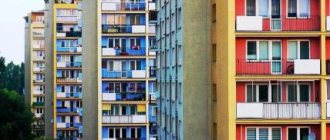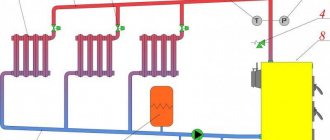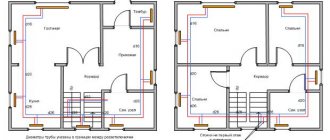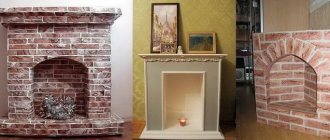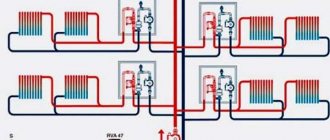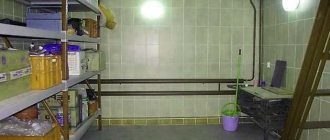How is the fee adjusted according to Resolution No. 354?
During the calendar year, payments for heating are made evenly, in accordance with the formula established by Government Decree No. 354 of 2011. In case of changes in heat supply, the following recalculation options are provided:
- by virtue of the law (Government Decree No. 354 of 2011 and Article 157 of the Housing Code of the Russian Federation);
- at the request of the owner.
Recalculation for heat by the state
Recalculation by the state is carried out automatically. A citizen is not required to independently contact the management company or submit an application. As a result, funds are not returned to the account in the form of cash. But the next payment is reduced by the recalculation amount. However, the recalculation is not always in favor of the owner. Often, additional funds are collected from the owner of the premises.
How does the state do it for the previous year?
Let's look at how the state recalculates heat costs. Government Decree No. 354 of 2011 provides for the adjustment of heating bills for residential and non-residential premises in apartment buildings once a year.
The amount of compensation is calculated using the formula:
Pi = Pk.pr x Si/Sob – Pfn.i , where:
- Pk.pr is the amount of payment for heat for the past year, determined in accordance with the readings of a common house meter or based on standards (in the absence of a meter).
- Si is the total specific area of the room.
- Sob is the total area of all premises of an apartment building or the total area of a residential building.
- Pfn.i is the total amount of heating payments for the past year.
What is it connected with?
Clause 42(2) of Government Resolution No. 354 of 2011 provides the grounds for recalculation at the initiative of the state. If the legislation of the region decides to change the method of payment for heating, then the management company must adjust payments for the previous year during the first quarter of the next year.
When are such actions illegal?
Let's find out the degree of legality of recalculation for thermal energy in practice. Illegal overpayments for utilities often occur. The culprits of the extortions are management companies. Additional charges for utility services are possible for the past 3 years. If the management company changes, you may receive repeated receipts with recalculation. In such a situation, you must provide a receipt for payment.
Payments for utility services must be calculated strictly in accordance with the formulas specified in Government Decree No. 354 of 2011. And recalculation is possible only once a year. Repeated recalculation or application of other calculation principles is unacceptable.
Where can I complain if I receive a receipt with a large amount in the bill for thermal energy?
Owners of residential and non-residential premises are not obliged to remain silent in the case of high utility bills. You can challenge an illegal charge to the following authorities:
- Management Company;
- state housing inspection;
- Rospotrebnadzor;
- prosecutor's office;
- court.
How to file a complaint about illegal charges?
The complaint must be made in writing.
The applicant can file one complaint and send it to different authorized bodies.
The document must include:
- name of the authorized body;
- applicant's details (full name, address, contact phone number);
- document's name;
- service provider information;
- information about the intermediary (TZS, management company);
- list of violations;
- reference to law;
- request for prosecution;
- list of evidence;
- date and signature.
We do not recommend completing the documents yourself. Save time - contact our lawyers by phone:
8 (800) 350-14-90
How to calculate the recalculation amount
To understand how to recalculate heating costs yourself, you need to take as a basis clause 15 of the Rules for the provision of utility services to citizens of Government Decree PF No. 307 of May 23, 2006.
From this document it follows that for every 1°C temperature deviation per hour, the cost of payment is reduced by 15%. At the same time, during 5 hours of night time, a decrease in the norm by 3° is allowed.
Suppose that in one of the cities of Siberia, where the temperature in December is below -31 ℃, for a month in an apartment located in the center of the building there was only 15 ℃ of heat. At the same time, a heating bill was issued for 2,500 rubles.
The calculation will look like this:
- The general norm of 20 ℃ at night drops to 17 ℃ for 5 hours, that is, 2° is short of the norm. There will be 155 night hours in a month. So, for night time you can demand compensation: 2500 ÷ 744 (hours in a month) × 155 × 2 × 0.15 = 156 rubles.
- At all other times of the day, the deviation from the norm will be already 5°. During the month there will be 589 such hours. The calculation of compensation will be as follows: 2500÷744×589×5×0.15=1484 rubles. In total, the service company must compensate the consumer 1,640 rubles.
In the example, we considered a deviation from the norm of 2-5° depending on the time of day. If such a deviation is greater, then the amount of compensation will increase accordingly. However, the Law of the Russian Federation No. 2300-1 “On the Protection of Consumer Rights” establishes a limit on fines or penalties, which amounts to the full cost of the services provided. Therefore, no matter how much compensation you are calculated, it will not exceed the cost of heating for a month.
Adjustment by the resident
The owner has the right to initiate recalculation if the management company does not fulfill its obligations properly. Art. 157 of the RF Housing Code provides for the possibility of recalculating heating fees in the following cases:
- the service that was provided did not meet the standards;
- the service was provided with interruptions longer than those established by law.
Calculation of utility bills should be based on meter readings. In their absence, standards are taken as a basis. In special cases, increasing factors may be applied.
Make a heating payment adjustment during 2019
Our regular expert, practicing lawyer Elena Shereshovets, in the new issue of “Housing and Public Utilities: Dreams Come True,” told how heat supply utility providers can adjust heating fees in 2021 in an apartment building where not all premises are equipped with individual heat energy meters:
The expert recalled two rules that previously regulated the issues of adjusting heat supply fees:
- The fee adjustment for 2021 is made according to the formulas to be applied in 2021 on the basis of Part 1 of Art. 6 Housing Code of the Russian Federation. This norm stipulates that acts of housing legislation do not have retroactive force and apply to housing relations that arose after its entry into force.
- The adjustment is carried out in the first quarter of next year.
However, the formulas by which the fee was to be adjusted became invalid in the middle of the year, and the exact timing of its implementation was canceled, since clause 3(2) of Appendix 2 of the RF PP No. 354 lost force. The adjustment can now be made throughout 2019.
Why did the Constitutional Court of the Russian Federation demand a review of the heating billing system?
285199
Reasons
The owner may demand recalculation if the following grounds exist:
- If there is a deviation from the heat standards in the apartment. The significant difference in temperature between day and night is taken into account. Also if the temperature in the living room is below 18°C.
- Registration of a subsidy. This should not be confused with compensation for heating payments. If a subsidy is issued, the invoice in the payment slip must be reduced by a specified amount. If this does not happen, you must submit an application for recalculation.
- One or more radiators have failed. In such a situation, heat transfer decreases, so the citizen receives the right to recalculation.
Temperature is not normal
Temperature standards in residential premises are regulated by Chapter VI of Government Decree No. 354 of 2011:
- in residential premises - at least 18°C;
- in a corner apartment - at least 20°C;
- if for 5 days the temperature outside is below 31°C, then the temperature in the apartment should be at least 20°C;
- in a corner apartment - at least 22°C.
If the temperature drops for each hour, it is necessary to reduce the cost of payment by 0.15%.
No heating due to accident
During the heating season there must be an uninterrupted supply of heat. However, no one is immune from emergency situations. Government Decree No. 354 of 2011 regulates the possibility of stopping the heat supply during the heating season:
- in total during a calendar month – no more than 24 hours;
- at an apartment temperature of 12°C to normal – no more than 16 hours;
- when the temperature in the apartment is from 10 to 12°C to normal - no more than 8 hours;
- at temperatures from 8 to 10°C to normal - no more than 4 hours.
For each hour the total time is exceeded, the cost of payment for heating is reduced by 0.15% (read more about how the cost of heating per 1 sq. m. in 2021 is calculated here).
The heating season has begun, but the radiators are cold
First of all, you need to make sure that the reason for the lack of heating does not depend on the residents:
- taps on heating radiators are open;
- the paint layer on radiators does not exceed 1 cm;
- There is no air lock in the batteries.
If the fault for the lack of heat does not lie with the tenant, then it is necessary to draw up a report.
To do this, you need to invite a representative of the management company. And if he refuses to appear, it is enough to involve 2 neighbors. Based on the act, you need to file a claim with the management company. If the authorized body refuses to recalculate and eliminate violations, then it is necessary to prepare a claim in court.
Measure the temperature in the apartment
To obtain the basis for the requirements, you need to contact the management company (MC) and ask them to send special people to measure the temperature in the apartment. The person responding to such applications may hold the position of technician, mechanic, plumber - this is not particularly important. It is necessary that he has a thermometer and an apartment inspection report form with him. Please note that measurements must be taken in each room twice, with an interval of at least 10 minutes. There should be at least three such measurements per month (more is better). What should be in the inspection reports - otherwise the court will reject your claims:
- date and time of measurement;
- name and brand of the measuring device;
- Method of measurement;
- availability of measurement witnesses indicating names and contacts.
Representatives of the management company may refuse to include this information in their act, citing the lack of the necessary fields on the form, time and desire. The only way out is to conduct your own examination: find a professional thermometer (liquid or electronic, a thermal imager is also suitable), print out a report on checking the temperature conditions in the living room (can be found on the Internet) and invite neighbors as witnesses. For greater credibility, call someone from the HOA board, although this is not necessary. The device readings must be photographed each time. The drawn up act must be signed by all witnesses.
What should I do to review my payment?
If the management company does not take the initiative, then the citizen must independently protect his rights.
The procedure for obtaining a revision of the amount in the receipt for the billing period:
- Collection of documents and evidence.
- Drawing up an application.
- Submitting a complaint to the authorized body.
- Getting a response.
- Going to court.
The right to apply for recalculation is vested in the owner of the residential premises or his representative. Moreover, the representative must confirm his authority with a notarized power of attorney.
Where to contact?
Initially, you need to contact the management company. Filing a complaint with other authorities will require a response from the organization that is obliged to control the process of providing utility services.
Even if there is no response, it is necessary to provide evidence that the citizen tried to resolve the situation peacefully.
Required documents
List of documents for filing a complaint:
- the applicant's civil passport;
- title documents for the premises;
- payment receipts;
- thermal energy consumption metering protocol;
- act of acceptance and delivery of thermal resources;
- a document regulating heating tariffs in a populated area;
- data on the volume of transferred thermal energy;
- a copy of the agreement with the supplier (you can find out more about concluding a heat supply agreement here);
- act on detection of violations.
Most of the listed documents must be requested from the management company. In case of refusal to provide information or ignoring the request, the citizen may go to court.
A mandatory document for recalculation is an act of improper provision of services.
The document can be drawn up by representatives of the management company or the owner personally in the presence of 2 witnesses (not relatives).
As witnesses, you can involve the senior person in the building, the chairman of the house council.
How to write an application?
An application for recalculation of heating charges must include:
- name of the management company;
- applicant's details (full name, address, contact phone number);
- document's name;
- reasons for the recount;
- deadlines for making a decision;
- consequences of failure;
- list of documentation;
- date and signature.
The consequences of refusal include an appeal to Rospotrebnadzor, the prosecutor's office and the court.
We do not recommend completing the documents yourself. Save time - contact our lawyers by phone:
8 (800) 350-14-90
Sending documents
If you send an application, you must obtain proof of its delivery. The following delivery options are provided:
- Personally. The documents and application are handed over to the secretary. A copy of the application is affixed with a receipt mark and the seal of the organization.
- By letter. You must select registered mail with return receipt requested.
Duration of the procedure
Based on Art. 31 Federal Law No. 2300-1 of 1992, the management company must provide a response to the application within 10 days of receipt of the document. The calculation of the period begins from the moment of delivery.
New rules for recalculation of utility bills: main changes
We pay for utilities and, of course, have the right to ensure that they are of high quality. And if, let’s say, instead of hot water, cold water flows from the tap, and even with a bright shade of rust, it’s not us who should pay for it, but us.
Let's consider the latest changes in laws and judicial practice in the rules for recalculation of utility bills.
Further amendments to the Housing Code of the Russian Federation have been adopted
On October 27, 2021, the Law amending Art. 157 Housing Code of the Russian Federation (No. 351-FZ).
According to the new edition, recalculation for low-quality utility services will be made by the management organization or resource supply organization (if the consumer has a direct contract with it).
These organizations must figure out among themselves independently (who should compensate whom for losses due to poor quality services). Citizens need to file a claim with the person who directly provides them with the service.
In order not to pay for cold batteries or dirty water, we adhere to the following algorithm of actions:
1. We call the emergency dispatch service of the management organization and leave a request for poor quality service.
We ask for the number under which your application was registered in the journal. Or you can submit a written application addressed to the head of the company in person (through the reception desk) or by registered mail with notification.
2. The management organization must call you and agree on a time for the inspection.
The law does not prohibit the consumer from filming the inspection process in order to provide himself with evidence in case of a legal dispute. The inspection report is issued to the applicant.
3. If the result of the inspection does not satisfy you (it often happens that when the inspectors arrive, everything is in order, and then problems begin again), you can apply to the housing inspectorate for a repeat inspection, with the participation of their specialists.
4. You can attract an independent expert to check the quality of housing and communal services. The date and place of the inspection must be reported to the managing organization, since they have the right to monitor the progress of the examination.
If a low-quality service is confirmed, the costs of paying for the examination are borne by the management organization.
The conclusion that a utility service is supplied in violation of quality standards is the basis for recalculating the rent. The official requirements for the quality of housing and communal services are given in the Appendix to the Rules for the Provision of Public Utilities, approved. RF PP No. 354.
The downside of the new law is that it abolished fines for low-quality housing and communal services in favor of consumers. Now you can only receive recalculation and compensation for moral damages from utility companies (if the case goes to court).
The Ministry of Construction explained how much utilities owe consumers if cold water flows from a hot tap
This issue is addressed in the letter of the Ministry of Construction dated June 29, 2021 No. 20156-OG/04.
If the hot water temperature does not rise above 40 °C, then the resource supplier must charge the cold water tariff for each hour.
If the hot water temperature is above 40 °C, but still does not reach the standard, then for every 3 °C deviation from the standard, the monthly fee for hot water should be reduced by 0.1% for each hour of such violation.
Let me remind you that according to sanitary requirements, the temperature of hot water should be no lower than 60 °C and no higher than 75 °C (SanPiN 2.1.4.2496-09). A deviation of a maximum of 3 °C during the daytime and 5 °C at night is allowed (from 0.00 to 5.00 hours). Large deviations already require recalculation.
The Supreme Court of the Russian Federation abolished the statute of limitations rules for disputes regarding recalculation of rent
By ruling dated September 23, 2021 No. 301-ES20-13171, the Supreme Court of the Russian Federation confirmed that the management organization in disputes with tenants regarding the recalculation of rent cannot refer to the omission of the 3-year limitation period.
The management company was obliged to recalculate the heating fee taking into account the readings of the common building meter (whereas they charged the fee according to the standard if the meter was working).
The initial period for recalculation was set at 2015, i.e. beyond the 3-year statute of limitations. According to the Criminal Code, the court should have recognized the recalculation as legal only for the last 3 years.
However, all authorities, right up to the Supreme Court of the Russian Federation, agreed that in such disputes the rules of limitation cannot be applied (since these are not civil law, but administrative legal relations). Recalculation must be made for the entire time when rent was calculated incorrectly.
On what grounds can they refuse?
The statement does not always give the desired result. In some cases, the management company refuses to recalculate utility bills. Situations when going to court will not yield results:
- Blockages in radiators. Although responsibility for maintaining batteries rests with the management company, employees can report the absence of residents when carrying out maintenance work. In the best case, you will be able to get a radiator flushing service.
- Presence of air pockets in the risers. The management company is not to blame for this situation. To remove the traffic jam, you need to visit the apartment in which it is located. However, there is not always free access.
- Heat losses. A decrease in temperature in the apartment may be due to poor repairs. For example, cracks in windows or doors, lack of insulation in the walls.
Payment for the resources used is mandatory, but many people do not understand the abbreviations that appear on utility bills. In the context of constant increases and changes in tariffs, errors in calculations are increasingly common, so every payer should know the definitions of the main abbreviations. We recommend reading our other materials from which you will learn: why you pay for heating in the summer; does the tariff depend on the number of floors; What is heating payment debt and what consequences can it lead to?
